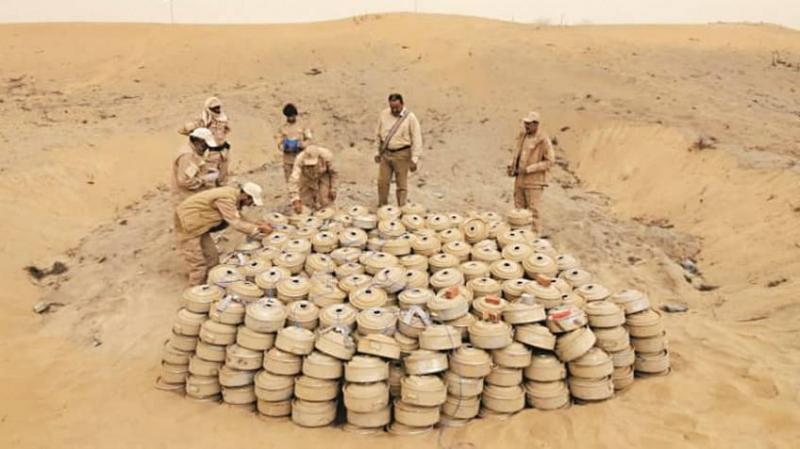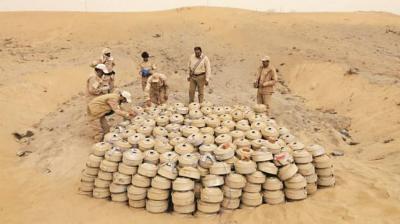The United Nations has warned about the danger of landmines planted by the Houthi group to the lives of Yemenis, urging the international community to provide necessary support to eliminate them and restore life across the country. Charles Frisbee, a mine action advisor at the United Nations Office for Project Services (UNOPS), during his visit to the "Masam" project headquarters for clearing Yemen's landmines in Marib, stated: "Yemen is suffering from a real disaster with mines, explosive devices, and war remnants, and everyone must stand with the Yemeni people to get rid of them and restore life to all areas in the country."
During the visit, the UN advisor listened to an explanation from the operations manager of "Masam" in Marib regarding the mechanisms and methods employed by the project. He also reviewed examples of smart and camouflaged mines that have been removed by the project teams deployed in nine Yemeni governorates, as well as the methods used to destroy and dispose of these mines to ensure a safe environment for all Yemenis.
UN advisor Charles Frisbee praised the role of the "Masam" project and its achievements over the past years, highlighting its significant contribution to saving Yemenis and removing mines and remnants left by the Houthi group. The Houthi group has transformed Yemen into the largest minefield in the world by planting nearly two million mines, as previously stated by the U.S. embassy in Yemen, noting that the removal of all mines will take eight years.
The mines planted by the Houthis have resulted in thousands of civilian casualties, particularly among children and women. Despite the dangers faced by the teams since the project's launch in 2018, the "Masam" project teams have managed to remove over 435,000 mines randomly planted by the Houthis across various governorates.
In a related context, a Yemeni observatory specializing in documenting the victims and effects of explosives from war remnants revealed that more than 100 civilian casualties were reported due to landmine incidents attributed to the Houthi group, mostly among children and women, in the first quarter of 2024. The Yemeni mine observatory stated in a report that its field teams recorded and documented 105 casualties among civilians, both dead and injured, most of whom were children and women, due to explosions from landmines and ordnance remnants between January 1 and April 4, 2024.
In another incident, eight civilians, including children and women, were killed and injured in a shelling carried out by the Houthis yesterday in the "Shuqb" area of the "Sabr Al-Mawadem" district southwest of Taiz city. Local sources reported that the shell caused the death of a man and two children, and injured five others, all of whom were women and children in the "Habour" village, leading to the transport of the injured for medical treatment.




